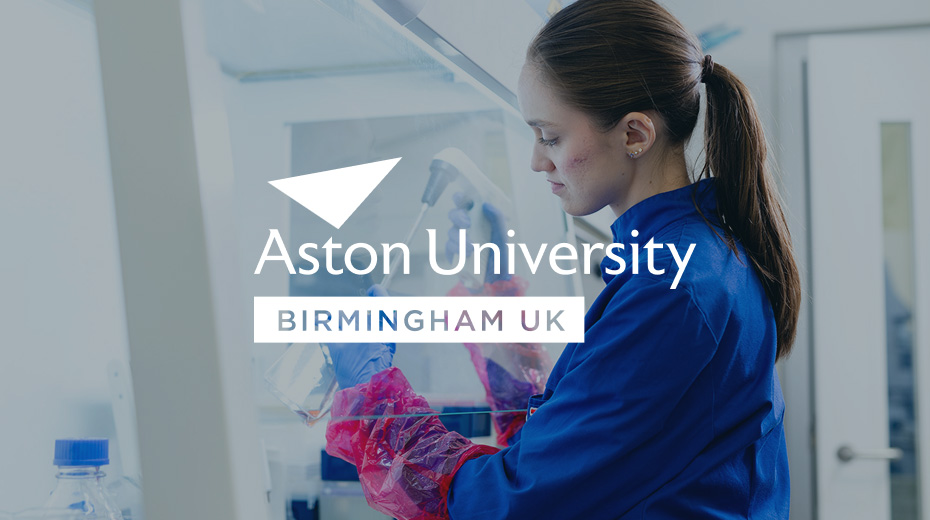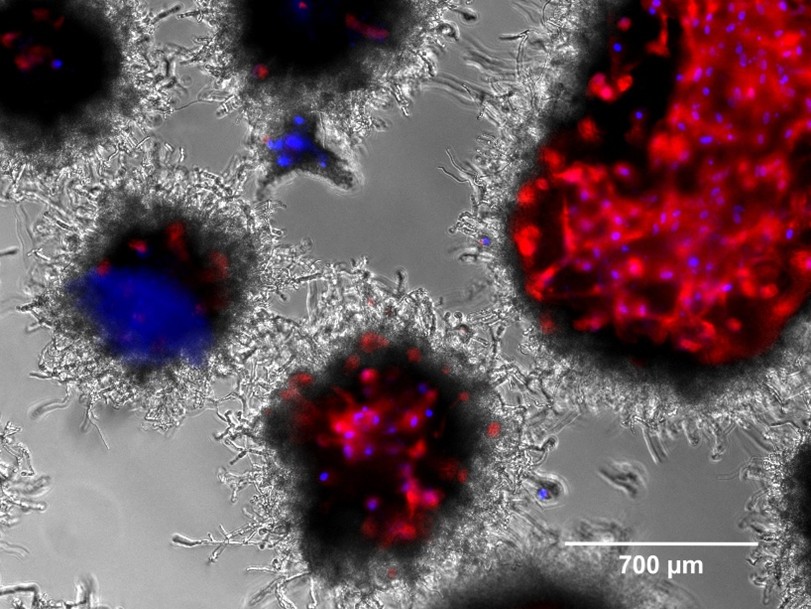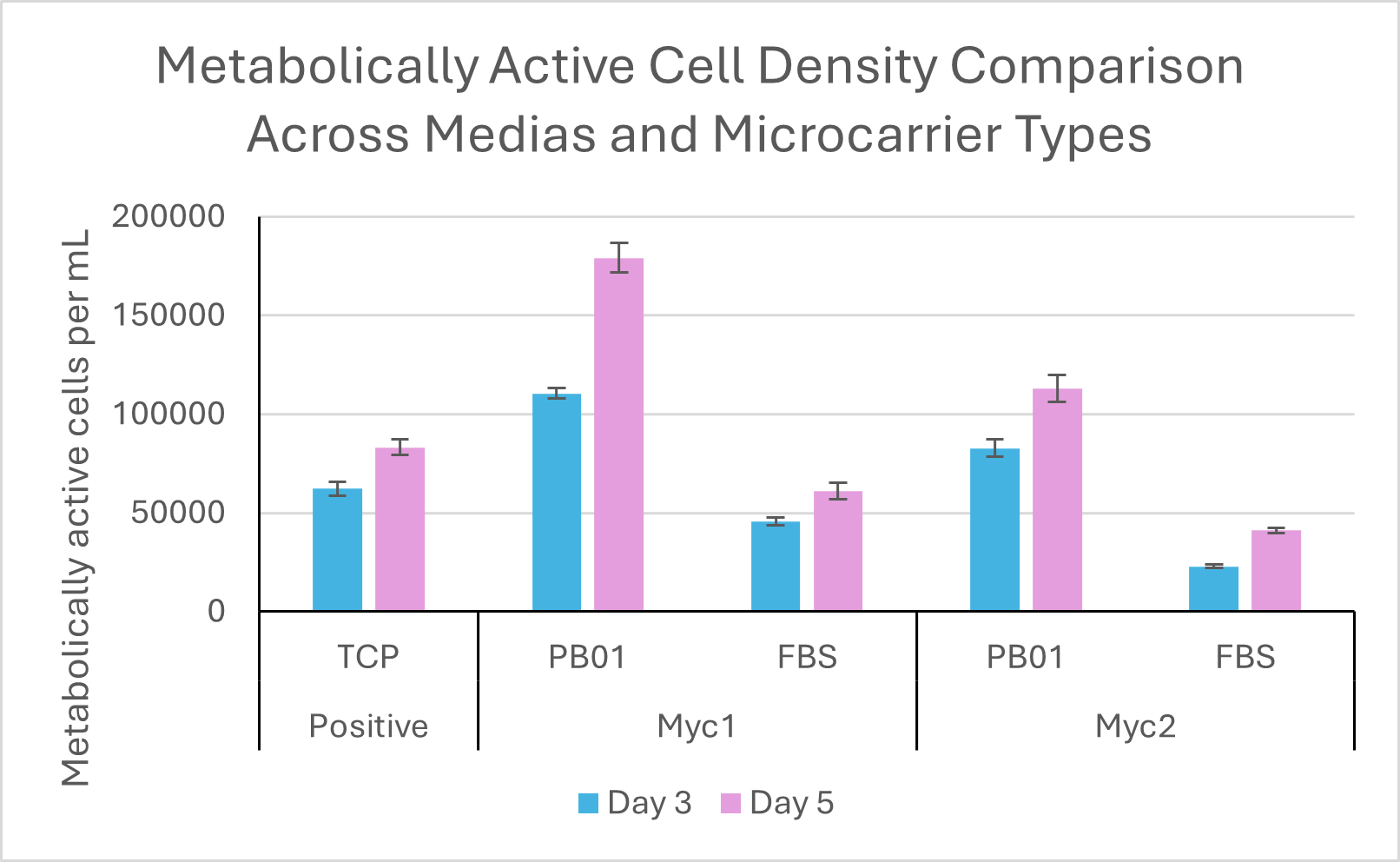Our solutions
Our customers

Aston University's Bioprocess Engineering research team is pioneering sustainable solutions for cultivated meat production. Led by Dr. Eirini Theodosiou and PhD researcher Alice Johnson, they are developing novel mycelial-based microcarriers and optimizing production methods that support efficient scale-up while prioritizing cost-effectiveness and ethical considerations.
Academic research in cultivated meat requires alternatives to FBS-supplemented media, which contradicts ethical goals, introduces batch variability, and imposes prohibitive costs. The Aston team needed a reliable, animal-component-free (ACF)media that would deliver consistent performance on their unique mycelial microcarriers while supporting their engineering-focused approach to scalable bioprocessing.
The Aston team evaluated Proliferum B (PB01) against FBS-supplemented media using Quest Bio's bovine adipose-derived mesenchymal stem cells on novel mycelial carriers from Myconeos. Using standardized 24-well plates with 80,000 cells/mL and 0.045gmicrocarriers/mL, they assessed performance at Day 3 and Day 5 against tissue culture plastic (TCP) positive controls. Cell performance was quantified through metabolic activity assays and fluorescent imaging to evaluate attachment, spreading, and overall cellular health.
Proliferum B(10X) is a panel of four ACF formulations, allowing companies to determine which works best for their specific conditions. Multus developed these ready-to-use solutions using their AI-driven platform for optimal cell attachment in traditional and demanding environments.
The Aston team's comparative analysis revealed Proliferum B's significant performance advantages:

Quantitative assessments demonstrated Proliferum B's superior performance:

The Aston team plans to expand testing to include comprehensive analysis of their four mycelial strains with Proliferum B, measuring both initial attachment rates and doubling times. Future scale-up into spinner flasks and bioreactors is in planning stages, with Proliferum B as the preferred media to support their journey toward larger-scale cultivation systems.
"We like Multus' approach because we know there's commitment to keep working in parallel with us to bring costs down. For us, scalability and cost are very important; everything we develop focuses on how it will perform at scale. When using different cells and species, Proliferum B delivers consistent performance while maintaining our ethical standards." — Dr. Eirini Theodosiou, Senior Lecturer at Aston University
By enabling cutting-edge academic research, Proliferum B creates a sustainable pathway for innovation while maintaining alignment with the core values driving the cultivated meat industry forward.
_____________
Technical Note: Proliferum B's enhanced performance on mycelial surfaces may relate to its ability to promote proper cytoskeletal organization, reducing cell aggregation and improving metabolic activity on these unique fungal-derived scaffold materials.
Sign up for email updates: